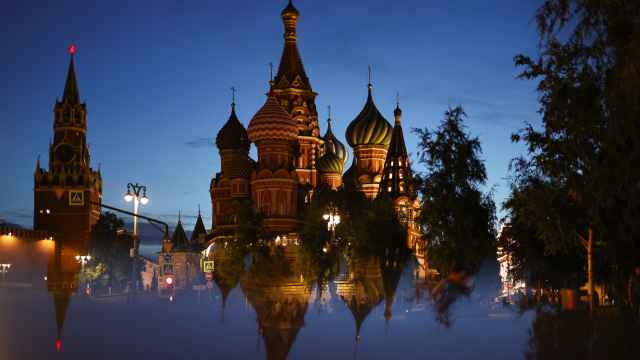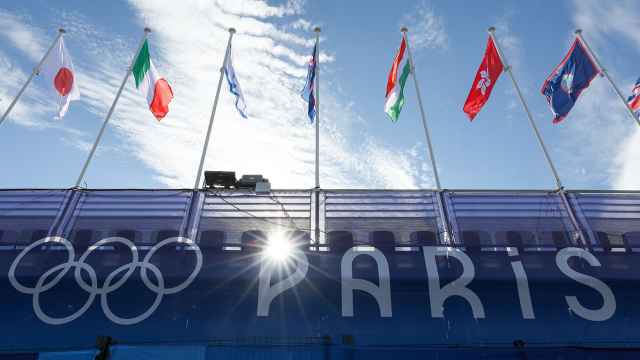Trend 1: the government extends its reach
Independent media in Russia have started 2018 with less room to maneuver than in 25 years. New legislation has given the government greater control over “unfriendly” media organizations based outside Russia that produce Russian-language content.
As of late 2017, the Justice Ministry has the power to brand any organization distributing content and receiving foreign funds as a “foreign agent.” An expansion of that legislation could allow the authorities to label individuals “foreign agents” too.
This could become an issue for media that receive funding from foreign governments like Voice of America or Radio Free Europe/Radio Liberty. But it also affects independent outlets like Meduza or The Bell, my own start-up.
The new rules are a logical continuation of tightening control over the media, which we have witnessed since the mass street protests of 2011 and 2012.
There is also some good news: The Kremlin, while increasing its role, seems to have no intention of following in the footsteps of China or North Korea by imposing a firewall. None of the new draconian measures are universally applicable. Their wording leaves the final call up to officials which, knowing something about the Kremlin’s decision-making process, means specific individuals.
It is common knowledge that high-profile officials in the presidential administration monitor the activity of the media and their staff. Decisions based on these new laws will be made on a case-by-case basis, depending on political momentum or emotions in the Kremlin.
How and which media are targeted will depend on Russia’s confrontation with the West, the threat of additional U.S. sanctions and even on the turnout in the upcoming presidential elections.
Trend 2: old media, old problems
Traditional media will continue to struggle with the same challenges they have faced for several years.
Barring a few exceptions — like the commercially successful RBC media holding — the world of Russian newspapers and glossy magazines will either teeter on the edge of profitability or incur losses.
Big outlets are likely to lose the battle for public attention to major tech companies like Facebook, YouTube, Instagram and Google, as well as the “Russian tigers” Yandex and VKontakte.
Media will also compete for talent with the tech and PR world, particularly given Trend 1.
Some relatively independent or stand-alone brands with a shaky market position may have to change owners, such as Delovoi Peterburg, which was recently sold.
There are also (unconfirmed) rumors that the business daily Vedomosti and the Russian edition of Forbes could be sold in the near future.
Trend 3: journalists will need to become more creative
Last fall, a former colleague told me that she had left her job at a prestigious media outlet to focus on her channel on Telegram.
Pavel Durov, the Russian founder of VKontakte, initially launched Telegram as an encrypted messaging app. But its channels function has now also become a popular news source among the Russian intellectual, government and business elite, and the service is showing explosive growth.
Some channels already have tens of thousands of subscribers — including the tabloid news channel Mash, which has more than 133,000 followers, and the Kremlin-sympathetic NeZygar channel, with almost 100,000 followers.
The channels can be monetized through takeovers or advertising, like sponsorship or native content. In Russia, there are 8 million Telegram users, about 1.5 million of whom use the platform as a source for news and scoops.
For independent journalists in Russia, online platforms such as Telegram present a huge opportunity. There are no design, development or support costs. The only investment required is content and, in some cases, marketing.
Last year there was huge growth in the number of Russian bloggers and their followings, mainly on YouTube and Telegram. I believe this trend will continue in 2018 so long as there is no government interference.
Some video bloggers have attracted millions of views with cheap, profanity-laced content. But there are other examples of serious journalism, such as the content produced by young journalist and editor Yury Dud, who interviews politicians and celebrities.
Following the growth in popularity of YouTube, VKontakte is also likely to pay more attention to producing video content.
The number-one Russian social media platform wants to move away from its reputation as a site for teenagers and position itself as a
space for a more mature audience to attract advertisers.
Trend 4: finding a niche
In a recent report, Nieman Lab outlined a variety of successful media strategies for 2018, of which The Bell follows two: to find
a niche and focus on the specific needs of your audience, and to publish fewer, but more targeted, news stories.
The Russian market will follow these strategies in its own way — it has little choice given the limited resources and constant pressure from the government.
Some notable examples are opposition leader Alexei Navalny, who first gained notoriety as an anti-corruption blogger.
His investigations are few and far between, but each one has a long shelf life in the media.
Another success story is the law enforcement monitoring website Mediazona, which recently launched a crowdfunding appeal.
This year will be the year of the media start-up that chooses its niche wisely.
Elizaveta Osetinskaya is the founder of The Bell news start-up. The views and opinions expressed in opinion pieces do not necessarily reflect the position of The Moscow Times.
A Message from The Moscow Times:
Dear readers,
We are facing unprecedented challenges. Russia's Prosecutor General's Office has designated The Moscow Times as an "undesirable" organization, criminalizing our work and putting our staff at risk of prosecution. This follows our earlier unjust labeling as a "foreign agent."
These actions are direct attempts to silence independent journalism in Russia. The authorities claim our work "discredits the decisions of the Russian leadership." We see things differently: we strive to provide accurate, unbiased reporting on Russia.
We, the journalists of The Moscow Times, refuse to be silenced. But to continue our work, we need your help.
Your support, no matter how small, makes a world of difference. If you can, please support us monthly starting from just $2. It's quick to set up, and every contribution makes a significant impact.
By supporting The Moscow Times, you're defending open, independent journalism in the face of repression. Thank you for standing with us.
Remind me later.








